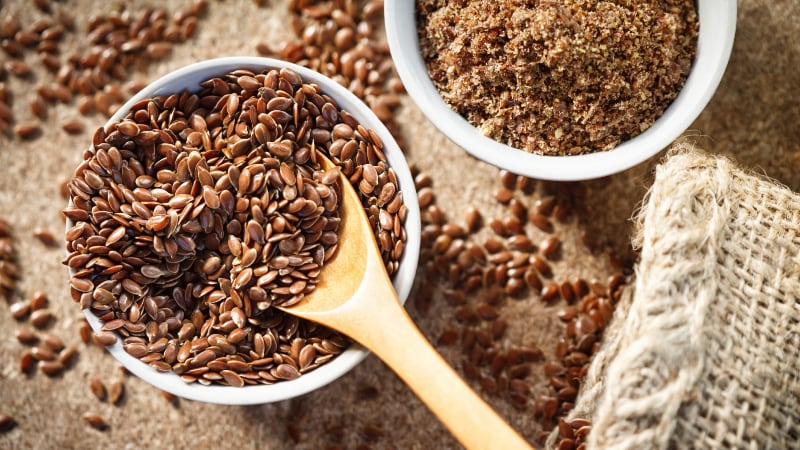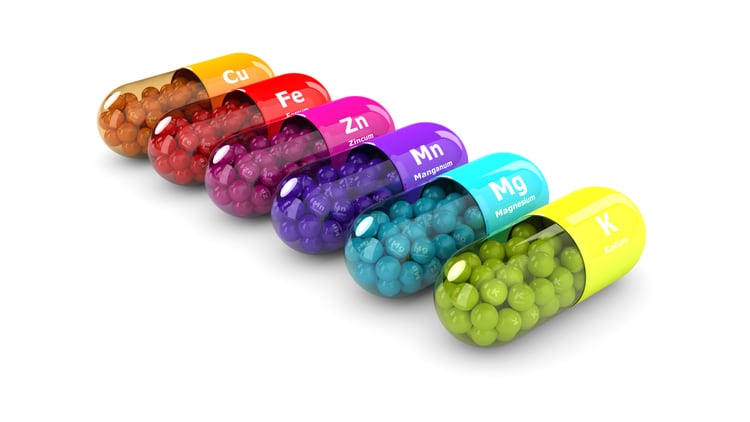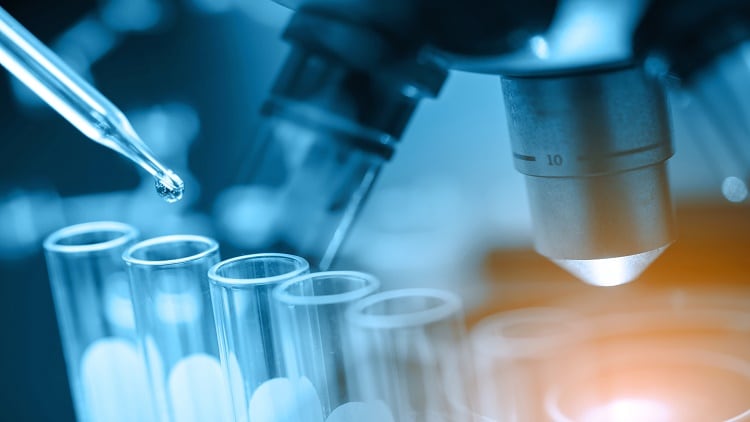The synthesis and metabolism of sex hormones are influenced by various factors including genetics, dietary intake, physical activity, and environment.
While some studies have suggested that the consumption of flaxseed may regulate sex hormone levels due to its phytoestrogen content such as lignans, existing data is limited and inconsistent.
To examine the effect of flaxseed intake on sex hormone profile, researchers in Iran carried out a systematic review and meta-analysis of 10 randomised clinical trials (RCTs) that were searched up to March 2023.
Specifically, the sex hormones included in this meta-analysis are follicle-stimulating hormone (FSH), sex hormone-binding globulin (SHBG), free androgen index (FAI), total testosterone (TT), and dehydroepiandrosterone sulphate (DHEAS).
Results showed that flaxseed supplementation did not significantly decrease FSH, although studies with an intervention duration of 12 or more weeks reflected a more significant reduction in FSH levels.
In addition, data from six RCTs revealed no significant changes in SHBG following flaxseed supplementation.
However, a subgroup analysis indicated that flaxseed supplementation in participants with PCOS, an intervention duration of 12 weeks and above, and mean age of 50 years and below had a significant effect in increasing SHBG.
It was also found that consumption of flaxseed did not meaningfully alter TT, FAI, and DHEAS levels. Nevertheless, a subgroup analysis revealed that the effect of flaxseed on TT levels in men with prostate cancer were more robust than the entire sample.
“It should be taken into account that few RCTs have investigated the impact of flaxseed supplementation on sex hormones. Furthermore, a short intervention period may not be adequate to elicit significant alterations in sex hormones levels.
“It is also possible that an effect was actually existent but unobserved in this study due to the small sample sizes of the included trials. Therefore, further research is required to reach a firm conclusion about the effect of flaxseed in different durations and doses,” the authors wrote.
Mechanisms to be uncovered
Oestrogen and progesterone are the main female sex hormones whose production and secretion are triggered by pituitary hormones, including FSH.
Besides regulating the reproductive system and maturation, these sex hormones play other critical roles in overall health.
For example, oestrogen is said to have a protective effect on bone mass, immune system, and cardiovascular system, while muscle mass is strengthened by androgens.
Consequently, an imbalance in sex hormones is associated with the incidence of several diseases, such as osteoarthritis, obesity, metabolic syndrome, PCOS, cardiovascular disease, and different cancers.
According to the authors, the effects of dietary components on circulating sex hormone levels are potentially of great importance for the prevention of hormone-associated issues.
“For at least two decades, flaxseed and lignans have been examined for their capability to prevent hormone-related tumours such as breast cancer. Notably, lignans are suggested to have anticancer properties due to their inhibitory effect on cell proliferation.
“Moreover, lignan has shown to decrease testosterone by binding it to enterohepatic circulation and 5-alpha reductase, the enzyme that converts testosterone to dihydrotestosterone.”
Another mechanism by which lignans appear to have a role in controlling sex hormones may be due to their interaction with enzymes involved in hormone metabolism and synthesis.
In vitro studies have proposed that lignans may decline oestrogen synthesis by impeding the aromatase enzyme responsible for altering androstenedione and testosterone to estrone and oestradiol respectively.
“The mechanism by which flaxseed supplementation could affect sex hormones is currently not well understood. More studies involving young and healthy participants, different forms of flaxseed and preparation methods, and longer periods of supplementation are needed to confirm our findings,” said the authors.
Source: Frontiers
https://doi.org/10.3389/fnut.2023.1222584
“The effect of flaxseed supplementation on sex hormone profile in adults: a systematic review and meta-analysis”
Authors: Vali Musazadeh, et al





